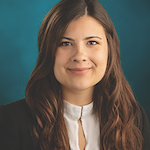Dr. Crosby likes to connect students who have not matched with those currently going through matching to help them get a sense of what the future might look like and how to move forward successfully. She also recommends that students reach out to counselors or a psychiatrist, especially those associated with medical schools. “It can be challenging as you’re simultaneously asked to make very difficult and important decisions,” she said.
Explore This Issue
August 2022Dr. Wang has counseled medical students about the chance of not matching, and that the preparation for residency must begin early in medical school— getting to know the specialty, working with faculty members and residents on research projects, writing papers, and gaining experience in research or even obtaining another advanced degree. Because of the number of people interested in the specialty, it’s vital that every otolaryngology applicant create a Plan B.
Renée Bacher is a freelance medical writer based in Louisiana.
One Student’s Matching Story
In 2021, Southern Illinois University (SIU) medical student Sophia Matos, MD’s, top choices in otolaryngology residency programs were the Vanderbilt University School of Medicine, the University of Tennessee Health Science Center, the University of South Florida Medical School, and SIU. Like many aspiring otolaryngologists, she applied “literally everywhere.” Unfortunately, she didn’t match anywhere.
During her third year of medical school, COVID-19 had caused lockdowns, barring Dr. Matos from doing in-person rotations in her two specialties of interest, dermatology and otolaryngology. She wasn’t able to rotate on either specialty until her fourth year, by which time application writing was well under way. A few days after the Oct. 1 application due date, she began a rotation on an otolaryngology-related service and loved it. She felt it was the perfect field for developing long-term relationships with patients and she wanted to work with diverse head and neck pathology in both surgical and medical roles.
She reworked her initial dermatology application to apply to otolaryngology and applied in 2021, withdrawing all of her applications from dermatology programs. “I was advised not to dual apply because that showed lack of dedication to both specialties,” she said. “I knew that applying late hurt my chances in an already competitive field, but felt I had to try everything.”
She had missed the deadline to make use of signaling, but she landed five interviews and thought they had gone well. Unfortunately, Dr. Matos did not match.
